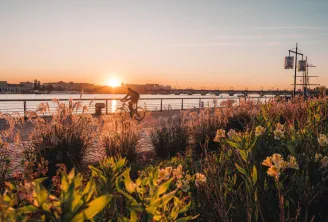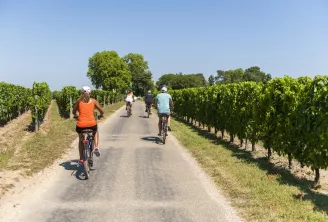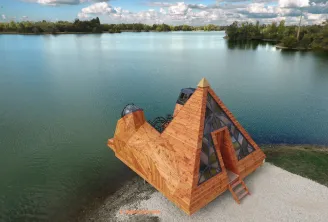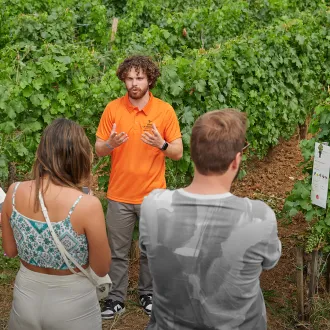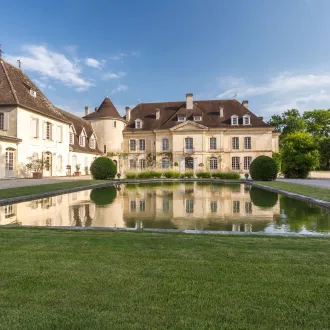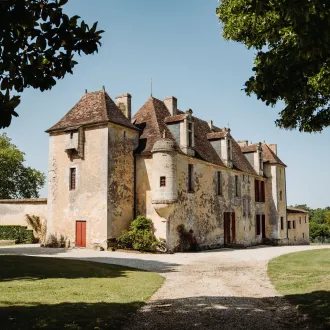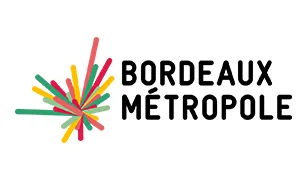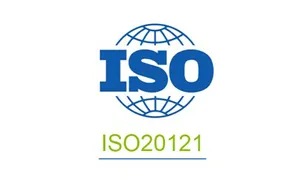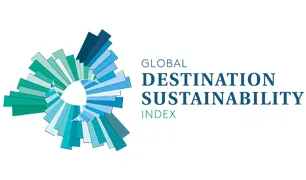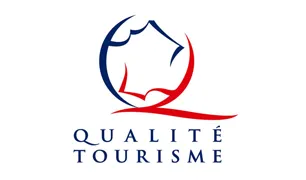Discover the châteaux that are committed to promoting gentle methods in the making of their wines.
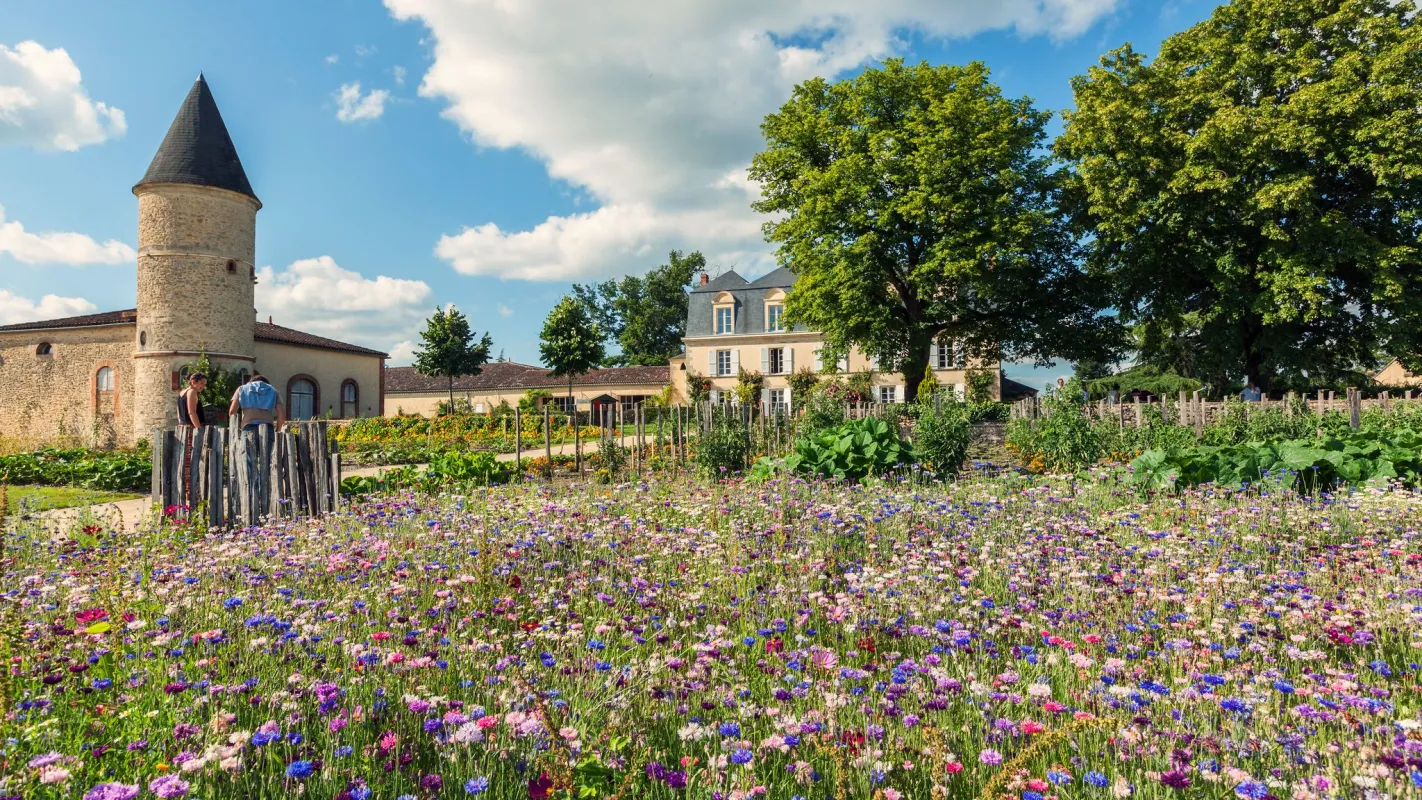
Discovering ecological practices in winemaking
Bordeaux’s wineries have completely transformed their practices by introducing agroecological principles and placing the preservation of biodiversity at the heart of their thinking. Biodynamic methods, agroecology, viti-forestry… Each of these estates all has its own eco-friendly practices to share. Come along as seven chateaux open their doors to us!
Château La Dauphine: gardens and bee colonies
Built between 1744 and 1750 by Jean-Baptiste de Rochon, Château La Dauphine lies close to Libourne and once hosted the heir to the French throne. Among their wide range of tours, at La Dauphine you can enjoy a fun, instructive tour of the park, taking in their biodynamic vines, a fragrant garden, their beehives, their permaculture and aquaponics vegetable patch, all the while learning about how the property has applied its environmental approach. The tour ends with a tasting session of 3 wines, including a dry white, accompanied by some of their honey, produced on-site. La Dauphine has won 4 Best of Wine Tourism gold medals for the quality of its activities!
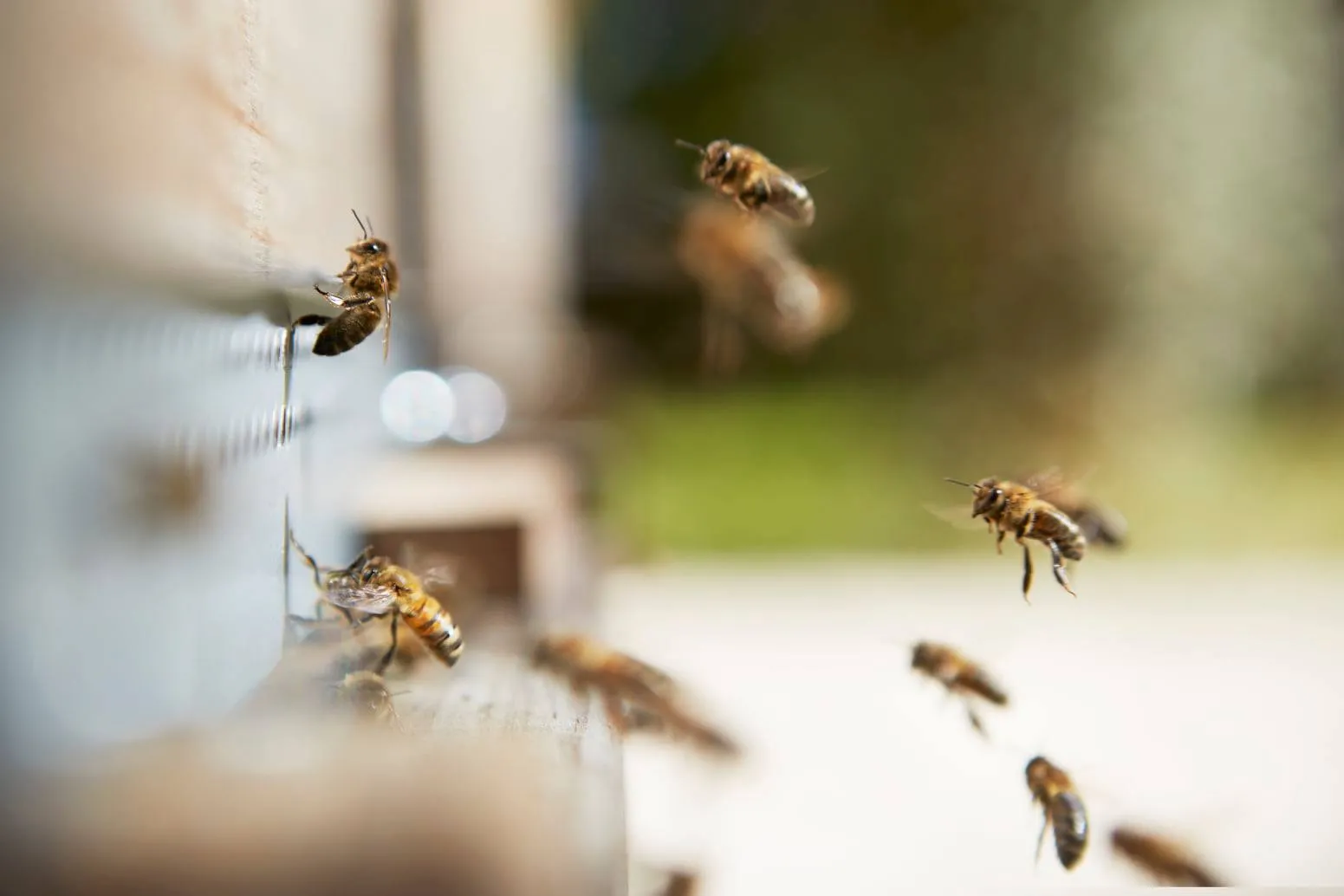
Château de La Dauphine
- Rue Poitevine 33126 Fronsac
- Information and bookings
Château Guiraud: cycle through a haven of biodiversity
The pioneering approach taken by this chateau - which, for decades, has put biodiversity at the centre of its strategic thinking and actions - results in the production of four fine white wines, including a Premier Grand Cru Classé. Bushes to foster integrated pest management, an old Gallo-Roman road lined with 181 plane trees, insect hotels, birdhouses, a vine conservatory, natural sewage treatment… Learn about all of their environmental initiatives as part of a guided tour, which can also be enjoyed by bike: a fresh way to discover the first Premier Grand Cru Classé to be certified as organic!
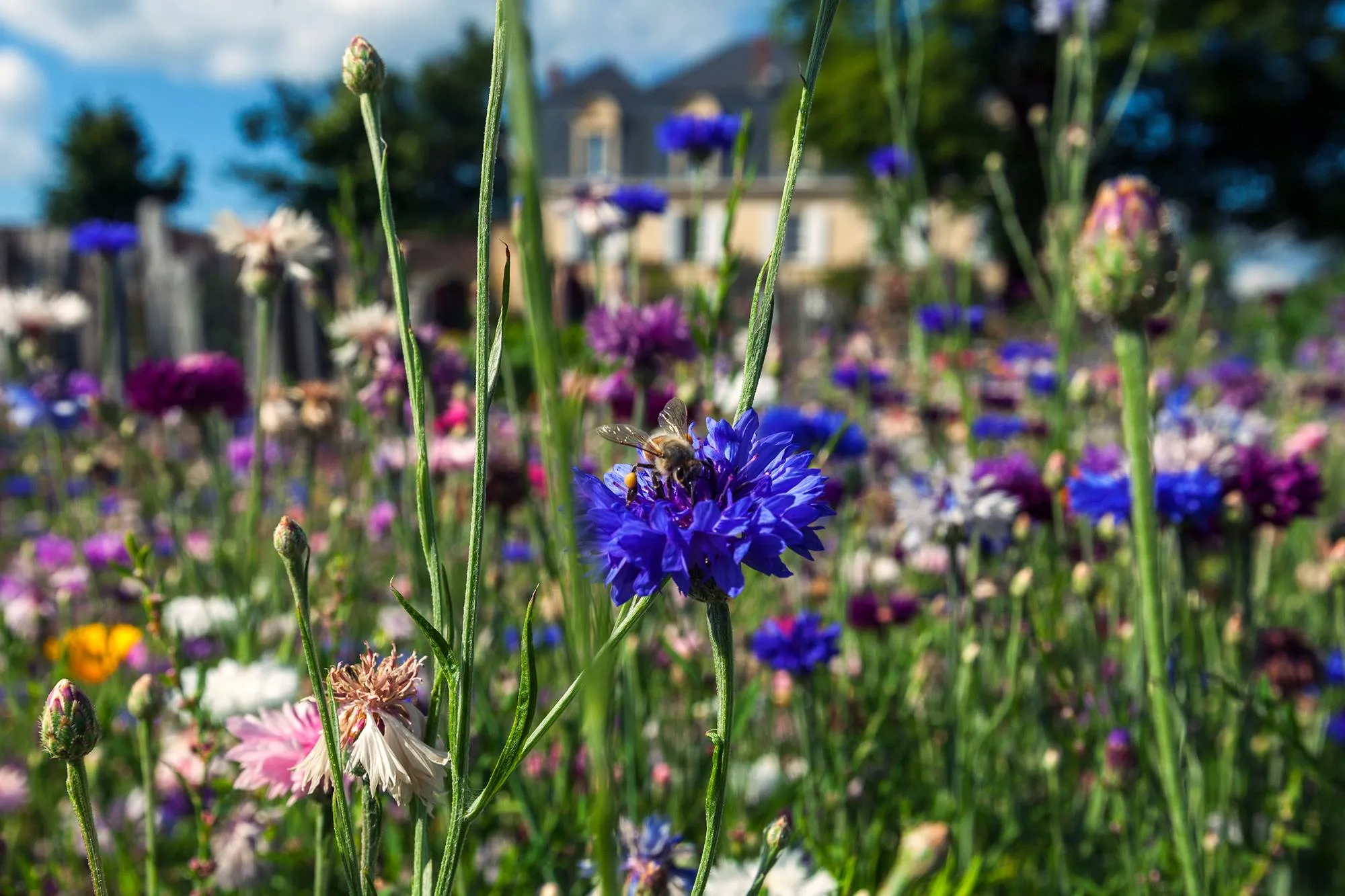
Château Guiraud
- 33210 Sauternes
- Information and bookings
Château Haut-Bages Libéral: a walk deep into agroecology
At the instigation of its dynamic owner, Claire Villars-Lurton, the Pauillac Grand Cru Classé estate of Château Haut-Bages Libéral has become vigorously involved in winegrowing that promotes equilibrium between flora, fauna and viti-forestry. Their efforts saw recompense in the shape of a grand prize in the “Pedagogy and promotion of the environment” category of the 2021 Trophées de l’Œnotourisme awards, rewarding the highly educational aspect of their tours, including their “agro-ecological walk”. The latter sees visitors walk the length of Château Latour and stroll across their vegetable patch before exploring the fermenting room and cellars at Haut-Bages Libéral. Top off your immersive agroecology experience by tasting three wines, all of which are certified biodynamic wines.
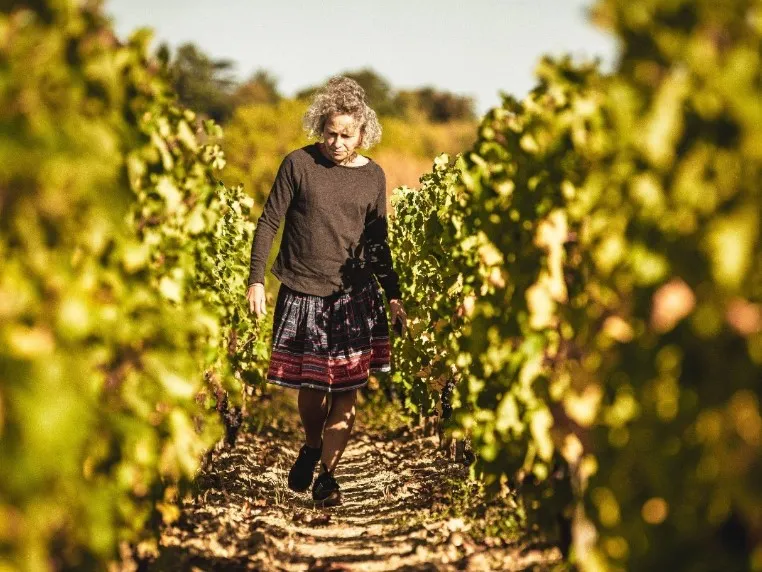
Château Haut-Bages Libéral
- 18 Chemin des Balogues - Saint Lambert - 33250 Pauillac
- Information and bookings
Château Malartic-Lagraviere: the forest paths of Malartic
The Bonnie family, with Séverine at the helm, had the great idea of opening up a green pathway through the renowned Graves Grand Cru Classé estate. Over one hour, enjoy a pastoral stroll from the farm to the chateau via the famous gravelly hilltop where the vines grow. The path takes you to secret spots, through clearings and protected woodlands, where you’ll come across cows and horses. The escapade offered by this iconic Graves estate ends with the same bucolic charm as the walk; weather-permitting, enjoy a wine tasting along with a gourmet platter of local foods under an arbour. Get up close to nature to nurture a better understanding of wine!
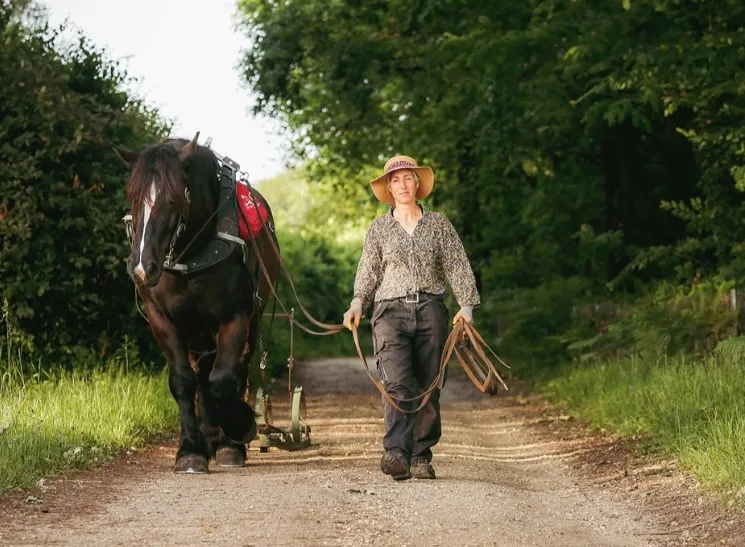
Château Malartic-Lagraviere
- 43 Avenue de Mont de Marsan - 33850 Léognan
- Information and bookings
Château Fleur de Lisse: biodynamic agriculture for everyone
Château Fleur de Lisse is flying the flag for biodynamic agriculture with its wine tourism activities. Though their practices are rooted in nature, their approach to winemaking is ultra modern, as seen by their new cellars. Fleur de Lisse is a Saint-Emilion Grand Cru located at the foot of the clay and limestone slopes. It is the jewel in the crown of the Vignobles Jade group. To get a 360° perspective of the estate, the tour starts among the vines, nurtured using biodynamic methods. One of their ambassadors takes you through the natural cycle of the vine, the work involved in organic agriculture and the specifics of biodynamic practices. Next, you visit the cellars, where you’ll learn the secret of vinification and maturation. Finish off with a tasting of four vintages, accompanied by some ripened cheese. Fleur de Lisse know how to receive guests!
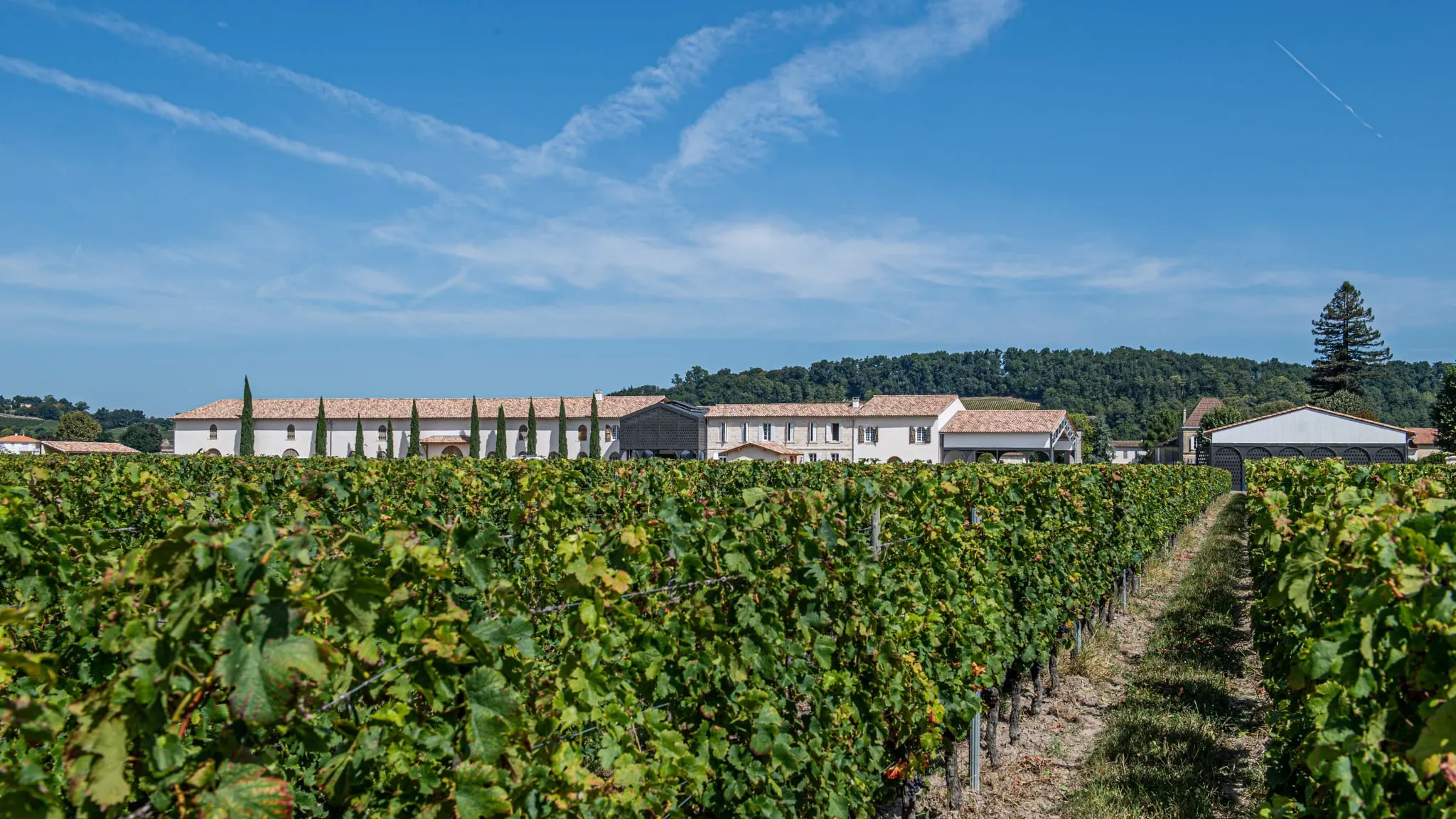
Château Fleur de Lisse
- Lieu-dit Gaillard - 33330 Saint-Hippolyte
- Information and bookings
Château Luchey Halde: the school of good practices
Château Luchey-Halde is the property of L'École Nationale Supérieure des Sciences Agronomiques de Bordeaux-Aquitaine. It is a significant advantage, conferring the estate with incomparable scientific input. “Bordeaux Sciences Agro” means to make this urban winery a window display of good environmental practices in viticulture. With regard to ecological issues, Luchey Halde is a pilot site. A tour teaches visitors how vineyards can reduce their impact on the environment using scientific knowledge. It is also an opportunity to taste their white and red wines, produced in the Pessac-Léognan appellation, just a few kilometres from the centre of Bordeaux.
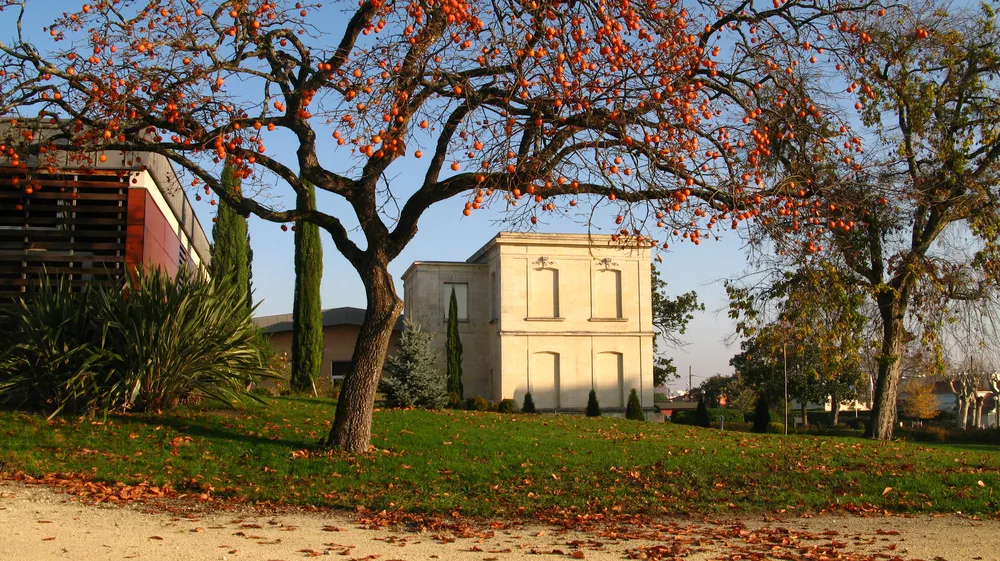
Château Luchey Halde
- 17 Av. du Maréchal Joffre 33700 Mérignac
- Information and bookings
Château Jean-Faure: organic, logical viticulture
The charming, perfectly restored 18th-century country mansion is striking, and then there’s the plane trees, a stone pine and a cedar: the emblem of Jean Faure, which shows the status held by his estate in the 18th century. This Saint-Émilion Grand Cru, situated a few metres from La Dominique, invites visitors to re-energise in the tree-filled park, featuring trimmed box trees, Japanese-style gardens and a water feature. Unusually for Saint-Émilion, Jean-Faure produces wines dominated by the Cabernet Franc grape variety, which you can discover for yourself at the end of a magnificent immersion in the vineyard’s haven of biodiversity. Château Jean Faure completed its transition to organic agriculture in 2017, opting to adopt biodynamic methods, which you can find out about as part of a tour of the property.
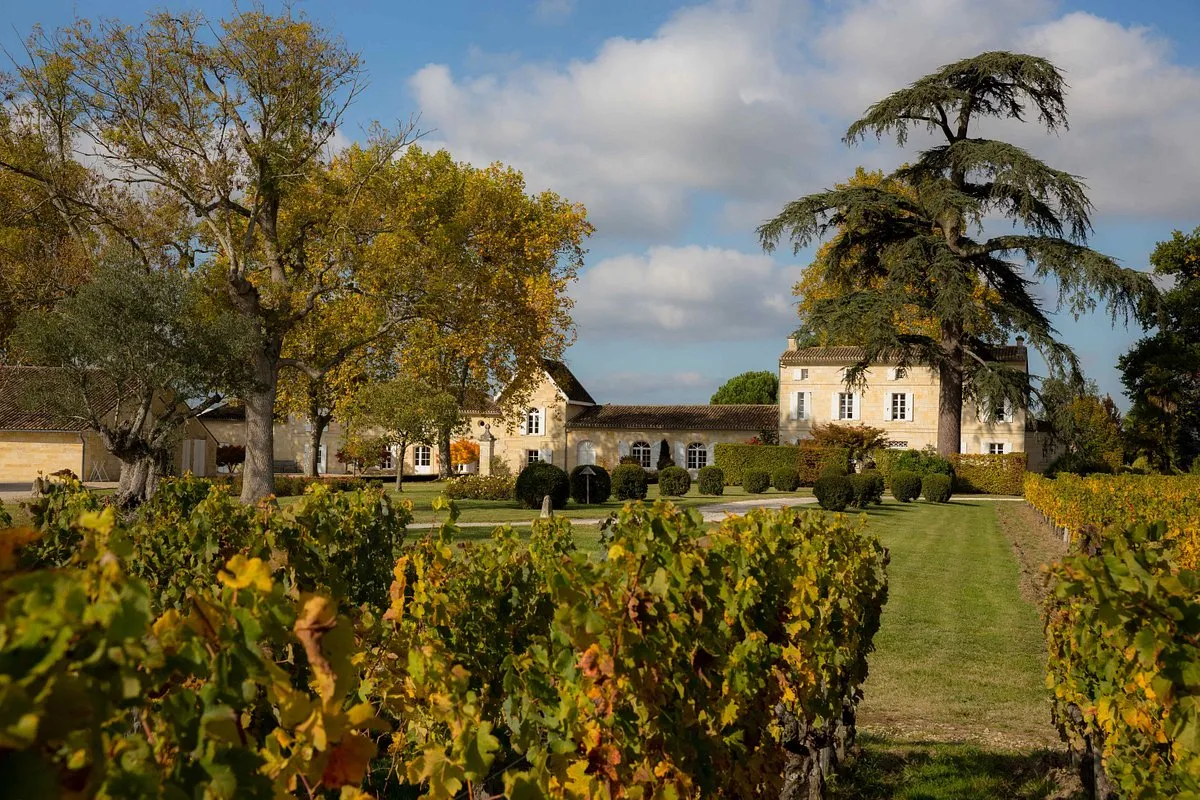
- Château Jean Faure - 33330 Saint-Émilion
- Information and bookings
You may also like
Sustainables activities in the vineyard


